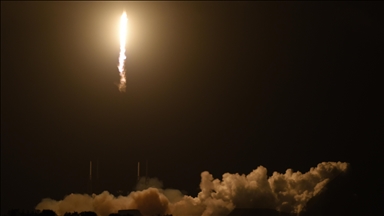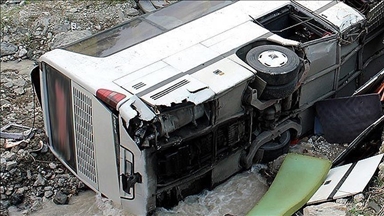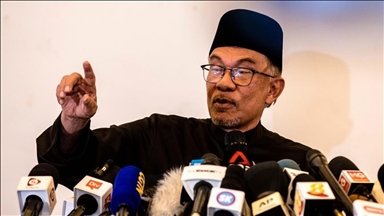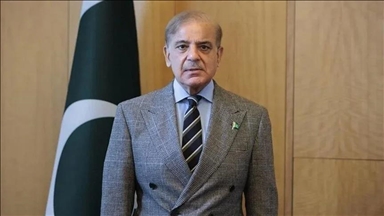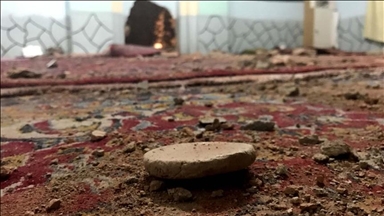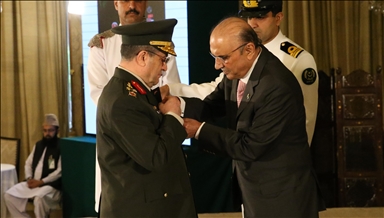Frayed Pakistan-Afghanistan bilateral ties face new challenge with expulsion of refugees
Analysts say Islamabad’s decision to expel hundreds of thousands of undocumented refugees could impact ties with Kabul

- Analysts say Islamabad’s decision to expel hundreds of thousands of undocumented refugees could impact ties with Kabul
- Pakistan has the right to take such decisions as a sovereign nation, caretaker minister Jan Achakzai tells Anadolu
- Former federal minister and ex-senator say expelling refugees violates international laws
ISLAMABAD
At a press conference in the Pakistani capital on Wednesday, Anwaar ul Haq Kakar, the country’s caretaker prime minister, reiterated a message that has been echoing in Islamabad for a while now: Afghanistan is to blame for the resurgence of terror attacks in Pakistan.
He presented some figures to back the assertion, saying there has been “a 60% increase in terrorism and a 500% increase in suicide attacks” in Pakistan since the Taliban came back to power across the border in 2021, claiming more than 2,000 lives.
The premise for his words was that the interim Taliban government has been supporting the Tehreek-e-Taliban Pakistan (TTP), a conglomeration of several militant groups that Islamabad claims are currently based inside Afghanistan.
That view in Islamabad has been the cause of much friction with Kabul, which has repeatedly denied that its soil is being used for deadly attacks in Pakistan.
It has brought Pak-Afghan relations to a particularly low point, where the two sides regularly engage in a game of claims and counterclaims.
But Pakistan has also gone beyond just words, launching a massive campaign to expel millions of undocumented foreigners, most of whom are Afghan refugees.
Various estimates suggest somewhere between 250,000 to 300,000 undocumented Afghan nationals have been forced to leave Pakistan in the past month.
Pakistan had more than 2 million undocumented Afghans, including at least 700,000 who left Afghanistan after the Taliban’s return, according to UN figures.
In the first four days from beginning of November, more than 60% of arrivals in Afghanistan from Pakistan were children, data by the UN humanitarian office revealed.
The mass deportation has drawn a sharp reaction from the Taliban administration.
Mohammad Yaqoob, the acting defense minister, warned Islamabad that bilateral relations will deteriorate exponentially if it goes ahead with the plan.
“Pakistan should asses the consequences of expelling Afghans,” he said in Kabul last week.
He called the expulsion of Afghan refugees an injustice, urging Afghan businessmen to shift their wealth to Afghanistan to “hit” the Pakistani economy.
However, Pakistani officials such as Jan Achakzai, the caretaker information minister for the Pakistani province of Balochistan, dismissed Yaqoob’s words as statements meant for “domestic consumption.”
Defending Islamabad’s stance, he said those being expelled are not just Afghans, while asserting that Pakistan has the right to take such decisions as a sovereign nation.
Achakzai also rejected fears of an impact on bilateral relations between Islamabad and Kabul.
“I don’t think it will have a negative impact. We really believe in constructive engagement and are already engaged with Afghan authorities,” he said.
The TTP factor
Pakistani analysts believe the TTP factor has been critical in a breakdown of relations.
The Taliban insist the TTP has no presence in Afghanistan, saying that all of its leadership has relocated to Pakistan since late 2021.
“The Taliban may claim that there is no TTP in Afghanistan, but recently we saw several key TTP commanders were killed in explosions and target killings in Afghan provinces bordering Pakistan,” said Abdul Saboor, a veteran journalist who closely follows events in the Pak-Afghan border areas.
Said Nazir, a retired brigadier and political analyst, said an attack in the northwestern Chitral district on Sept. 6, “when hundreds of terrorists crossed the border from Afghanistan … and targeted Pakistani forces and civilians, compelled our government to take some strict decisions.”
At least seven terrorist attacks have already been reported in Pakistan in November, including last Saturday’s storming of an air base in the city of Mianwali.
Saboor believes the “Afghan Taliban could use the TTP against Pakistan to build pressure to stop the expulsion of refugees,” but warned that “such tactics will create further tensions.”
He said Pakistan could be pushed to close down border crossings, which would further dent bilateral trade that has already fallen from around $2.5 billion in 2010 to slightly over $1.8 billion in 2022-23.
Nazir said the situation could be exploited by “anti-Pakistan elements” in the region, referring to India.
He accused New Delhi of having “used Afghan soil against Pakistan” in the past, allegations that India has previously denied.
Most thoughtless and inhuman decision
Despite the official stance, there are voices within Pakistan critical of the move to expel hundreds of thousands of refugees.
“This is a human rights issue, not a political one,” Ansar Burney, a former Pakistani federal minister for human rights, told Anadolu.
He also termed the move “a violation of international laws.”
Farhatullah Babar, a former senator and member of the Human Rights Commission of Pakistan, slammed it as a “most thoughtless and inhuman decision.”
“A caretaker government whose mandate is only to ensure free and fair elections cannot take such far-reaching decisions. It is also against the Cabinet decision of February 2017, which still holds field and not reversed,” he told Anadolu.
He said the situation is a “human disaster is in the making.”
“Helpless, shelterless Afghans are being pushed back into Afghanistan in winter. Women and children will be most affected,” he said.
Babar warned that this step “will only make Afghan people hostile towards Pakistan.”
“It will not be surprising if the desperate ones among them even join militant forces operating against Pakistan and compound its security problems even more,” he said.
“Unfortunately, the Afghan refugees have been made into a political football in the larger strategic games being played in the region.”
Anadolu Agency website contains only a portion of the news stories offered to subscribers in the AA News Broadcasting System (HAS), and in summarized form. Please contact us for subscription options.


